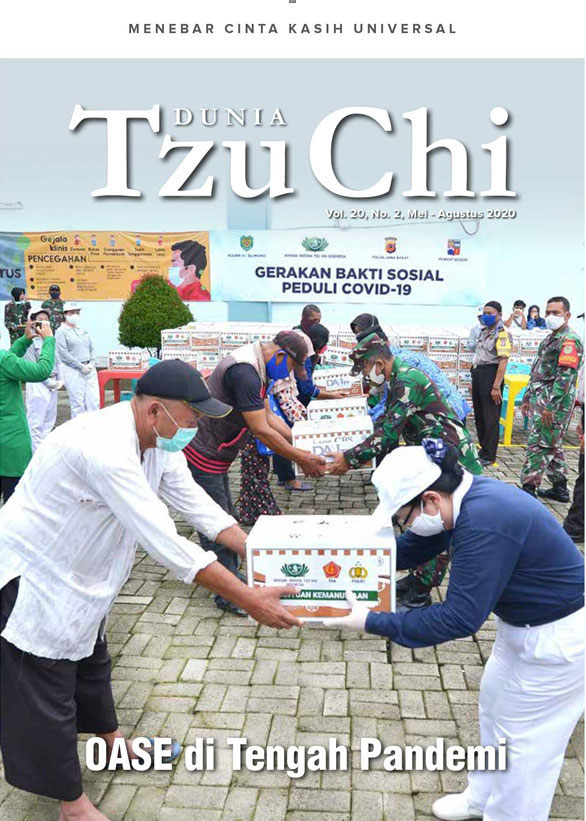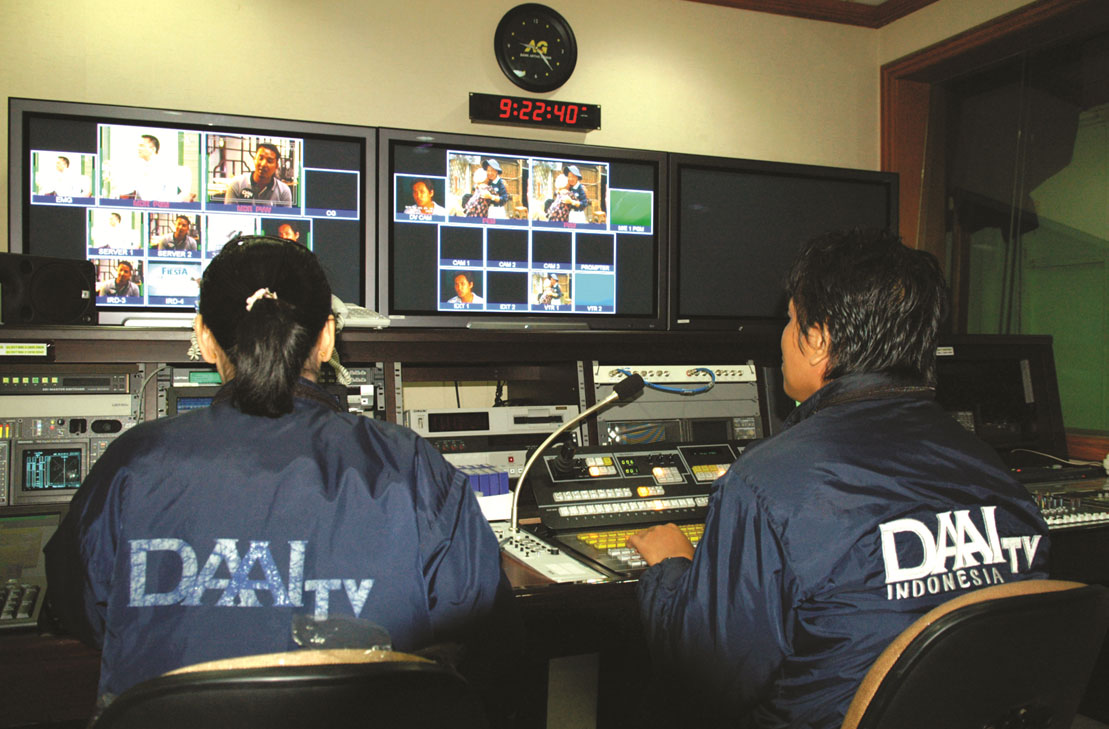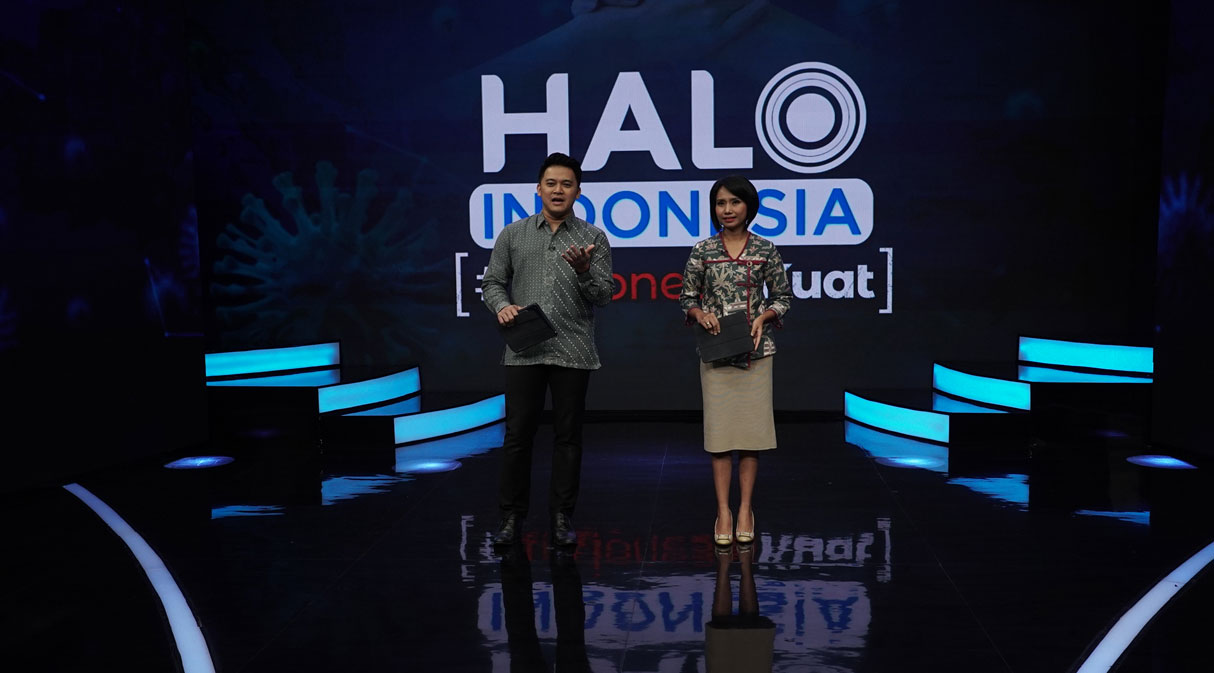Print Media and Tzu Chi Internet
The Historical Records of Truth, Virtue and Beauty

Tzu Chi print media is one ofthe manifestation of the Humanist Culture Mission that carries out the Truth, Virtue and Beauty values. The first Tzu Chi print media was published in Taiwan on July 20, 1967. It was a four-page newspaper compiled by volunteer, aiming to serve as a bridge between Tzu Chi and its members. It displayed the names of donors and the amount of funds they donated. The principles of Tzu Chi monthly issue are "never one to waste words", "no violation against the basic purpose of compassion" and "to lead the world to the purification of the human heart".
In Indonesia, at the beginning of its establishment Tzu Chi archived all data of activities in the forms of clippings and photo albums. In May 2000, Tzu Chi published the 4-page tabloid Dunia Tzu Chi as a means of information to inspire and arouse compassion of its readers in Indonesia.
In 2005, due to the rapid and widespread development of Tzu Chi activities, this tabloid has been transformed into a quarterly Tzu Chi World magazine and in addition to a monthly Tzu Chi newsletter. These media provide not only information of Tzu Chi activities throughout Indonesia, but also humanist and Dharma stories from Master Cheng Yen. A lot of humanist culture mission staff and the Tzu Chi documentation volunteers (known as Zhen Shan Mei volunteers) have given huge contribution in providing various inspirational stories for the media. Since 2012, the Tzu Chi Bulletin has been printed as many as 20,000 copies every month, owing to the contribution of Zhen Shan Mei volunteers that spread across various parts of Indonesia.
However, newsletters have limited space and time to document daily Tzu Chi activities in various places in Indonesia. Therefore, in 2005, Tzu Chi Indonesia launched a website at www.tzuchi.or.id. This page is updated daily, featuring news and photos of activities from various community units and liaison offices sent by Zhen Shan Mei volunteers across Indonesia. The website also showcases Master Cheng Yen's meditation words, vegetarian recipes, Tzu Chi songs, how to become a volunteer, and how to donate. This cyberspace media is eco-friendly.
DAAI TV Indonesia
Universal Love, that is the literal meaning of Da Ai. In the midst of electronic media shows that follow the trend of entertainment, violence, and consumptive nature, DAAI TV Indonesia is present as Television of Love. The broadcast of DAAI TV Indonesia seeks to present programs that are positive, useful, and evoking a sense of humanity for the people of Indonesia.

History of DAAI TV Indonesia
The presence of DAAI TV in Indonesia was prepared in January 2005 when DAAI TV started the first phase of employee recruitment. Six months later, on July 25, 2005, Da Ai TV Taiwan broadcasted an ASEAN News program in Indonesian covered by the DAAI TVIndonesia team.
In 2006, DAAI TV Medan obtained a broadcasting license for 51 UHF and DAAI TV Jakarta for 59 UHF. On October 1, 2006, DAAI TV Jakarta started a trial broadcast with a duration of 2 hours daily. On August 25, 2007, DAAI TV Jakarta began to broadcast officially. The premiere was aired every day for 4 hours and broadcasted for 24 hours. So did DAAI TV Medan, it started on air at 06.00 AM until 22.00 PM.

In 2012, five years after its official broadcast in Jakarta, DAAI TV has developed increasingly qualified and varied programs. DAAI TV Indonesia has its own building, auditorium, and studio at the Tzu Chi Center, Pantai Indah Kapuk, North Jakarta.
"The values ​​of humanist culture come from the heart. As the ancient saying goes, humans are born pure. Within every person, there is an innate good nature. To engage in spiritual practice, we also need humanist quality: sincerity that comes from one's honest heart, and sincerity among people.This quality comes from within the heart before putting it into practice in daily life." Master Cheng Yen
On a Mission to Spread Humanist Culture Values
Master Cheng Yen has witnessed the rise of social disturbances including the disturbing phenomena of lifestyle trends seen as "culture". In 2004, she decided to change the "Culture Mission" into "Humanist Culture Mission". It was meant to encourage Tzu Chi people to serve as role models in society who will continue to pass on the real life stories of humanist beauty and kindness to posterity.
Jing Si Books and Café was founded with the aim of safeguarding the human mind, body, and spirit. It promotes Jing Si publications and various lifestyle products that enhance the well-being of society as a whole. Da Ai Gallery is the world's first unique curatorial project born of intelligence and creativity. By presenting timeless stories that illustrate the universal values ​​of love, compassion, truth, and kindness, it serves not only as a training ground for volunteers, but also as a place to welcome volunteers and community members to re-energize themselves. Since its inauguration, the gallery has attracted visitors from diverse age-group, religious, racial and social backgrounds.
The Humanist Culture Mission carries the important missions of "purifying the mind", "bringing harmony in society", "exposing the suffering of people all over the world", and "straightening the minds of disoriented people". The other three Tzu Chi Missions: Charity, Health and Education Missions share the same goal of improving the quality of human life, purifying hearts and minds, and bringing light and hope to mankind. Thus, all Four Tzu Chi Missions embody humanist values.
The Path of Repentance and Compassion (Shou Yu)
In 2003, Dharma Master Cheng Yen began a series of lectures on the Buddhist classic text, called Compassionate Water Samadhi Repentance. The lectures, which lasted about five years, outlined important Buddhist teachings on the Law of Karmic Cause and Effect. These teachings invite people to humbly accept their challenging circumstances in life, to repent for their past mistakes, and to correct their negative traits and habits. In her lectures, the Master also highlights the importance of keeping our thoughts, words and actions to ourselves at all times while encouraging everyone to do good. Thereby, a positive flow of human goodness will be acheived.
To suit the modern urban tastes, Taiwanese Tzu Chi has adapted the long Water Repentance text into a musical performance. It is performed with several sets of lyrics played through beautiful and memorable music, enabling people to follow well and dive deeper into the Dharma. Through a harmonious combination of song, sign language, drama, and dance depicting many materialistic and modern faces, the stage adaptation has inspired people to take the Dharma into their heart. It is a return call to live the simpler and holier lives.








 Sitemap
Sitemap